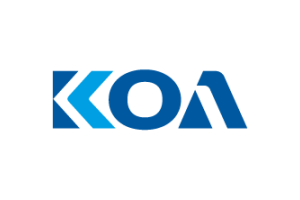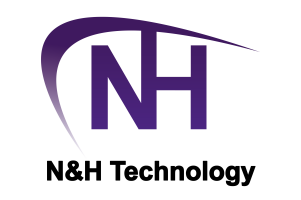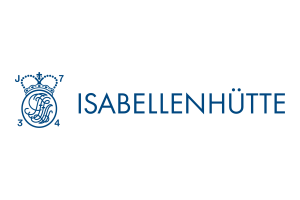As a result of the Coronavirus crisis
Companies expect automation boom
The majority of companies in Germany see considerable efficiency deficits in their own organisation. Every second company therefore focuses on more automation and better product quality. Six out of ten companies are pushing ahead with digitization projects and process automation.
These are the results of the study "Potential Analysis Operative Efficiency" by Sopra Steria and the F.A.Z.-Institut. 323 decision-makers as well as managers and specialists from various industries were surveyed.
Securing competitiveness through greater efficiency is a permanent topic for companies - the global corona pandemic is increasing the pressure. The economic effects are great. In this situation, efficiency gains in the form of savings and optimizations along the value chain are becoming even more important for many companies to master the effects of the crisis.
Even before the global pandemic with its drastic consequences, the economy had already cooled down significantly. Acute trade conflicts and political hotspots have unsettled stock markets and reduced sales opportunities. The forecast made by institutes and the German government at the beginning of the year to revive the economy has been revised. In addition to current developments, this is due to the significant rise in labour costs in the past year.
In times of Coronavirus, decision-makers are initially driving mainly on the basis of sight. However, early investments should help to cope with the situation, and operational efficiency should become even more important in the future. "Numerous companies have strategically cleverly set their digital investment priorities," says Urs M. Krämer, CEO of Sopra Steria. "In recent years, many companies have invested large sums in digitization and the restructuring of their business models, among other things. This can have a positive effect in the corona pandemic, because it is now accelerating the digital transformation. In the subsequent normalization phase, visible improvements can be expected in the form of new business, faster processes, lower costs or simplified workflows".
Efficiency programs: Companies are going multi-track
For 41 percent of the companies, a higher return on sales in their own company was already a high-priority goal before the effects of the Coronavirus pandemic, according to the study. For example, staff should spend less working time on non-value-adding tasks. 22 percent of the companies want to increase so-called accountability. Every second decision-maker surveyed expects an automation boom, partly because the potential of new technologies is currently not being fully exploited. Six out of ten companies are driving digitization projects with the greatest quick-win prospects, as well as automation of their processes.
71 percent of the companies want to replace inefficient processes with new ones. Every second company is methodically searching for clues to remove efficiency brakes. "Many business processes today are IT-supported. Data traces make it much easier to find out how a process can be accelerated or the effort reduced," says Jens Rohde, an expert in digital process management at Sopra Steria Next. "Those who have digitalized and automated workflows at an early stage will have more options for ad-hoc measures required to reorganize processes due to the pandemic. They can continue to run remotely or partially automated. Prioritization of resources is also much easier with transparent processes".
However, digitisation and process improvements are only two in a whole series of measures: More than every second company puts its range of products and services to the test. The goals are standardization and an increasingly modular structure. Divisional silos are to be broken up. Outsourcing is becoming less important for certain tasks. However, nearshore and offshore service providers remain important if alternatives such as robotic process automation (RPA) are not suitable, for example when outsourcing complex processes and entire business areas that are not core business.
The "human factor" is crucial
In addition to the classic rationalisation programs and detached from Coronavirus, the manufacturing industry, public administration, and energy suppliers in particular are also consciously investing in the health of their employees. Around one in three decision-makers wants to reduce sick leave in the normal course of business. In 2018, this figure had reached a new high of 18.5 days of absence per employee on average, according to the health report of the company health insurance funds in December. In order to reduce absenteeism, 38 percent of companies and administrations across all sectors are investing in company health management, while 58 percent of public authorities and utilities are doing so. This includes, for example, offers for the prevention of typical illnesses, but also the development of professional processes in the event of crises.
For two out of three decision-makers, appreciation is also a central lever for making their own company work more efficiently overall. 40 percent want to increase employee satisfaction. For example, they are reducing hierarchies, teams should be able to act more independently and thus more quickly. In addition, departmental boundaries are to be overcome.
"Acceptance is a decisive factor for more efficiency. If companies want to automate processes and parts of the business, they must explain to their employees that they will continue to be needed in the future and qualify them for these new tasks," says Sopra-Steria CEO Urs M. Krämer. Companies still have a lot of work ahead of them in this area: only 17 percent of the decision-makers surveyed currently see automation as relieving their employees of routine work rather than as a job killer, according to the study.
The study "Potential Analysis Operational Efficiency" by Sopra Steria and the F.A.Z. Institute reflects the results of a survey of 323 decision-makers and managers from the financial services, manufacturing, public administration and utilities, telecommunications and media sectors. In January and February 2020 they asked how companies and public administration want to become more efficient.





